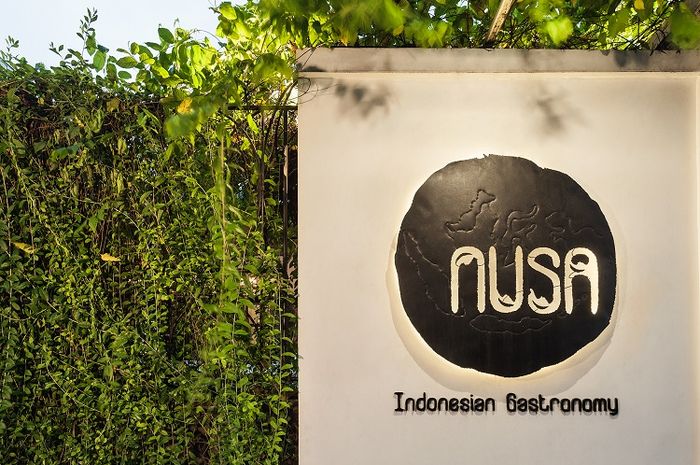
Kitchenesia.com - NUSA Indonesian Gastronomy is the opposite of any Indonesian cuisine restaurants out there. Indonesian restaurants usually offer openness – even the dishes are often displayed in the front windows for everybody to see.
NUSA, on the other hand, looks more like a concealed house of rich Dutch nobles during 18th century. With asian-style double doors overlooking big pillars, its facade reinforces an impression of a luxurious lodging rather than a place for eating.
From design alone, NUSA juxtaposes eastern and western, old and new aesthetics. It is quirky and pretty, and each decoration is an amalgamation of two contrasting styles melded into one. For example, there is a long bench cushion that is very European, but using traditional fabric motives for the cushion. The unexpected combinations are certain to start conversations at any dinner party - if you're one who's into that kind of social thing.
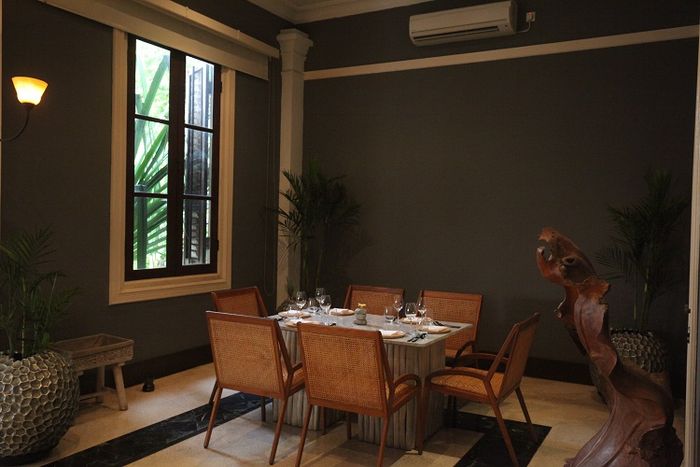
Contrary to what sniffy foreign gourmets might believe, Indonesia does have a lot of traditional cuisines – besides what foreigners know from CNN: rendang and fried rice.
Chef Ragil, the man behind the pan, attempted to wipe this assumption through menu he curated. Thus, it is not an exaggeration to say that NUSA is the only place for underrated traditional dishes to have stage presences.
Relying on sources that range from her mother cookbooks to friendly conversations with farmers, he tracked the interaction among these forces from pre-colonial to the present. That’s why he named the restaurant NUSA. The menu encompasses all of cusines throughout the original Nusantara region: from Indonesia to far north Southeast Asia country like Thailand. But still, Indonesian cuisine is more highlighted here.
I’m always curious about some traditional foods that don’t make it to spotlight. I say this with a sympathy, though. We ordered some food being the best-seller dishes in this restaurant.
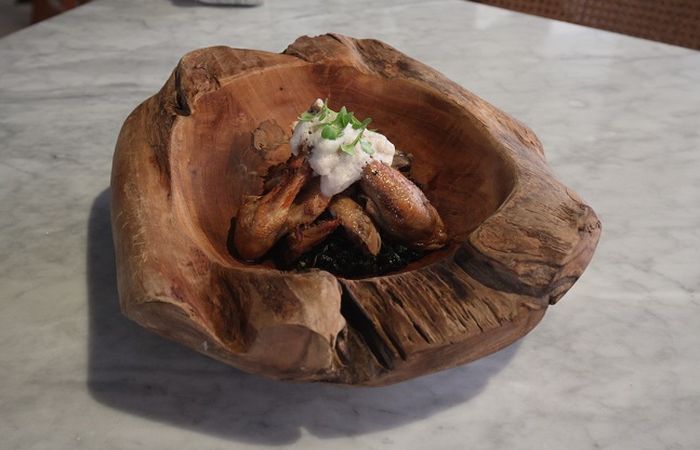
I had to raise an eyebrow over the presentation and wonder how in the world these dishes are not well-known. I must point out ayam masak air kelapa (fried chicken with coconut liquid). Technically, it is Padangnese’s ayam pop. However, with big wooden bowl, of course it becomes fine-dining dish. The flavor is humble. Don’t expect flavor crash or surprising taste, because it is not happening.
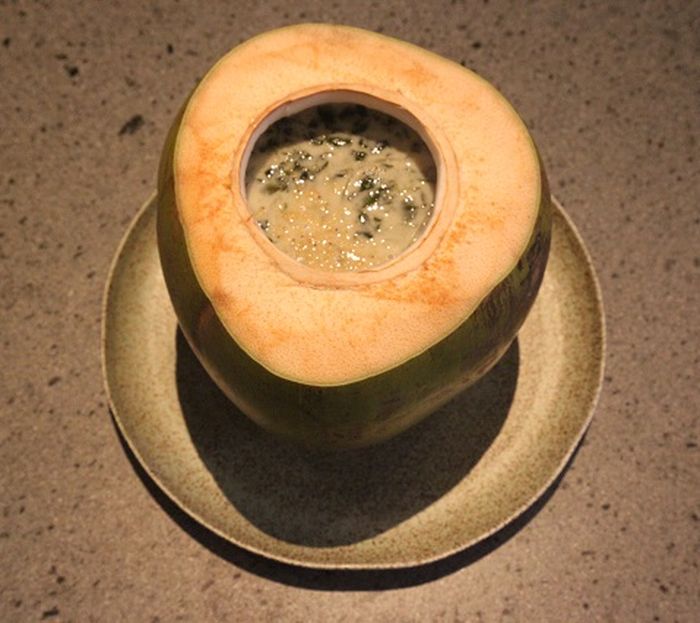
We had a large portion of bobor daun kelor. It is a ludicrously compelling combination of sweet and savory – mostly sweet. It is made of boiled moringa leaves with crumbly bits of dried shrimps that mustn’t be allowed to escape. It is served in a generous amount, put inside a green coconut. The best part is that the jelly-like coconut meat can be eaten together with the soup.
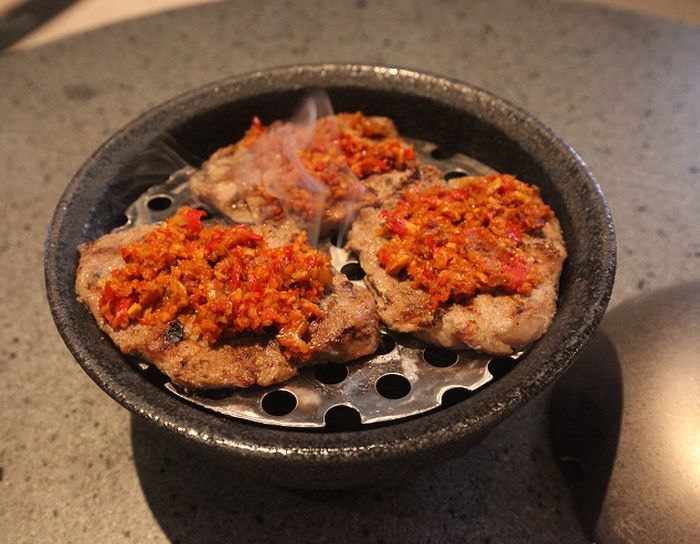
Next main course was dendeng batoko, a Padangnese food that I had never encountered in any Padangnese food restaurants. I was powerless in the face of three cuts of beef steamed directly in the metal bowl. There was a dollop of raw sambal simmering on the side of meats. It is a subtle dish, with tender texture and moderate spiciness, just as I expected. But the impact of this food went beyond flavors for its unique presentation.
The dessert menu included goyobod, and resistance is futile: it is a local version of panna cota – but tastier. I meant that in a good way. NUSA’s goyobod is different. It uses a chunk of avocado cake, and who knows avocado and mango syroup could be buddies in a dessert?! I didn’t know that.
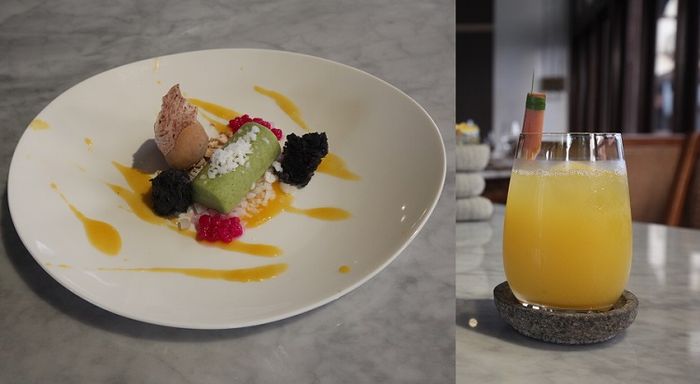
Nusa Ginger Flower was our closing for today’s feast. It is a artisanal beverage contains unexpected ingredient like torch ginger flower, and it suceeded to conquer my dry throat. We bowed our heads in thanks to NUSA Indonesia Gastronomy for showing us a different side of traditional dishes.






